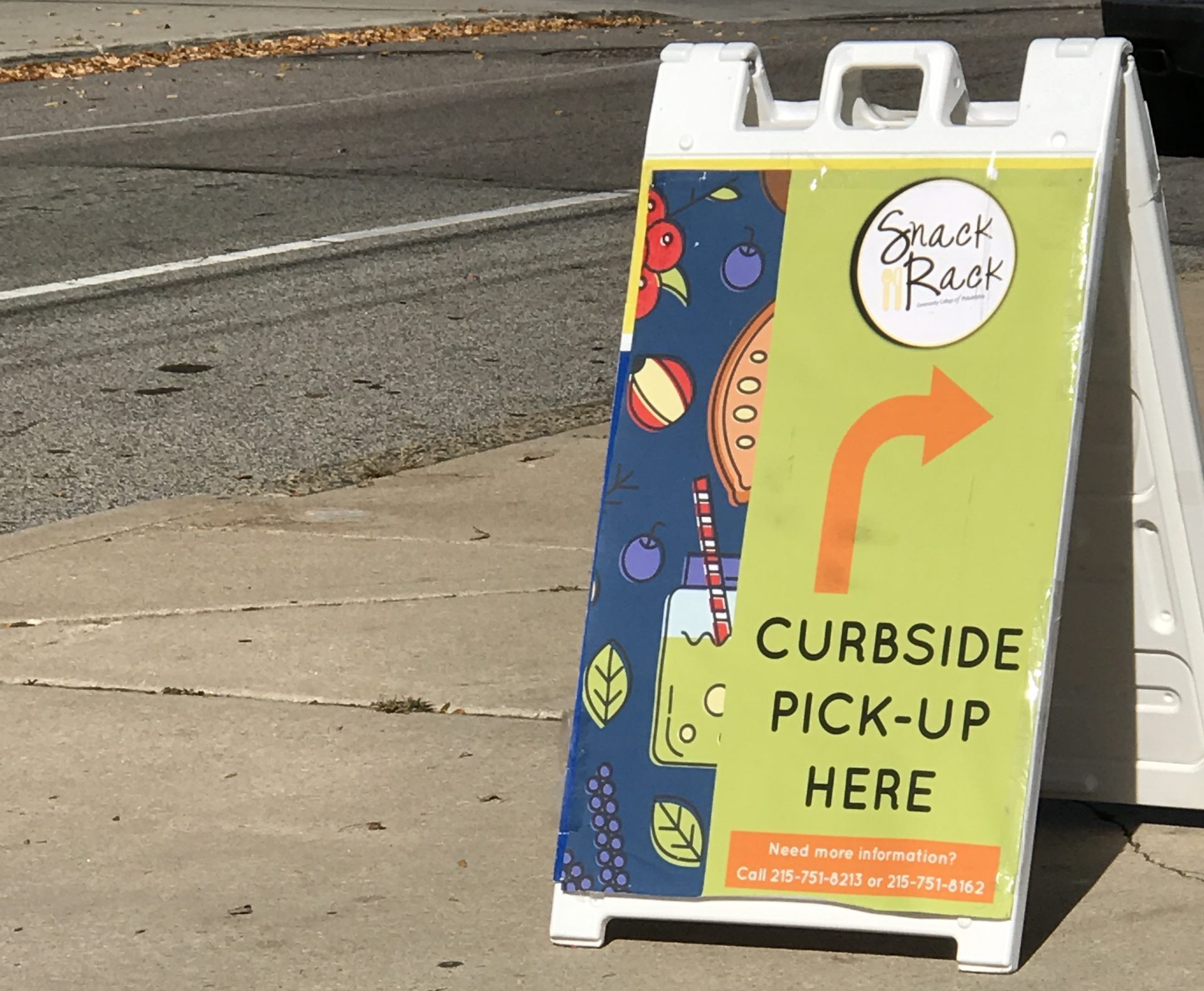Snack Rack’s Forced Closure: Alternative Resources
As we enter the cold winter months and the third wave of COVID-19, students who face food insecurity find themselves with one less resource.
The SGA sponsored and CCP foundation-funded Snack Rack has provided students with snacks and microwavable food since 2016 to help in the fight against student food insecurity.
This semester the program saw a change in operations. Instead of being open at all times it only operated two days a week by appointment through contactless curbside pick-up. As of November 20th, all operations ceased due to the increase of COVID-19 cases. In the city, new restrictions have been imposed to slow the spread.
According to an email statement, the Snack Rack was able to serve 80 students giving out a total of 786 snack packs and 567 family foodie bags before shutting down until further notice. The email continues by encouraging students to contact Single Stop for connections with food resources, emergency funds, and more.
During its Fall 2020 service, the Snack Rack failed to reach a wider range of CCP students and families. Liberal arts major at CCP Ramón González-Charleatream is one of the many students who did not know of its service.
I think I’ve heard of it but am not very familiar with it,” González-Charleatream said.
It’s unfortunate that only 80 students out of the many facing food insecurity benefited from the Snack Rack. While the intention was good there seems to be a lack of communication. It’s unknown if it will reopen its services for the upcoming Spring semester, hopefully, then more will know about its existence.
An article by the Washington Post cites a 2019 report done by the #RealCollege report that 39% of the 330,000 students enrolled at more than 44 colleges and universities face food insecurity. This is a grim reality that many students face during their time in college. While the closure of the Snack Rack is a loss there are many more organizations that are lending a helping hand to those in need; through meal donations, food banks, and even community fridges.
Organizations like Philabundance, Coalition Against Hunger, and Share Food Program offer short and long-term solutions that help people facing hunger. Recently, a more community-driven way to fight food hunger has appeared in the streets of Philadelphia; community fridges.
They are open to everyone only following the guidelines of “take what you want, leave what you don’t.” Here anything from canned goods to dairy to fresh vegetables can be found and taken by anyone in need. Community fridges can be seen all over Instagram inviting users to take advantage of it and to help those in need. Not only does this help the community but it creates a beautiful bond for Philadelphia neighborhoods.
Another community-driven organization, Juntos aims to help the Latinx community during the pandemic through their Solidarity Bank which offers drive-through pick-up or delivery to households in need of household items and food. González-Charleatream, has volunteered with Juntos and believes in their mission.
Juntos is playing a crucial role in bridging the gap that many individuals and families are experiencing,” González-Charleatream said. “Even though everyone is facing a new reality full of uncertainties, there’s always light at the end of the tunnel. “I like the idea of el pueblo de defiende and el pueblo se soporta.”
The translation of this saying is, the community defends itself and the community supports itself. Today more than ever, everyone is helping each other and in turn bringing communities closer.



